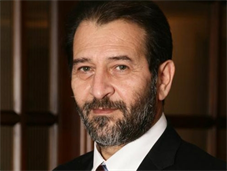King’s professor elected to National Academy of Medicine
23 October 2020 - Kypros Nicolaides was just one of 10 non US-based clinicians to be elected

Kypros Nicolaides, Professor of Fetal Medicine at King’s College Hospital, has been elected to the National Academy of Medicine in the USA. It is considered to be one of the highest honours in the fields of health and medicine, and recognises individuals who have demonstrated outstanding professional achievement and commitment to service.
Professor Nicolaides was bestowed the honour for ‘improving the care of pregnant women worldwide with pioneering rigorous and creative approaches, and making seminal contributions to prenatal diagnosis and every major obstetrical disorder’.
In total, 100 members were elected; 90 from with the United States (US) and 10 international candidates. New members are elected by current members through a process that recognises individuals who have made major contributions to the advancement of the medical sciences, health care, and public health.
Professor Nicolaides said, “It is an incredible honour to be elected to the USA National Academy of Medicine for my work in fetal medicine. I hope to continue to advance the care provided to women and unborn babies both locally at King’s and around the globe.”
Under the leadership of Professor Nicolaides, the Fetal Medicine Department at King’s is a leading clinical unit and research centre for the assessment and treatment of unborn babies, caring for more than 10,000 patients each year.
Established originally as the Institute of Medicine in 1970 by the National Academy of Sciences, the National Academy of Medicine addresses critical issues in health, science, medicine, and related policy and inspires positive actions across sectors. The National Academy of Medicine provides independent, objective analysis and advice and conducts other activities to solve complex problems and inform public policy decisions. The National Academies of Sciences, Engineering, and Medicine also encourage education and research and recognise outstanding contributions to knowledge.
